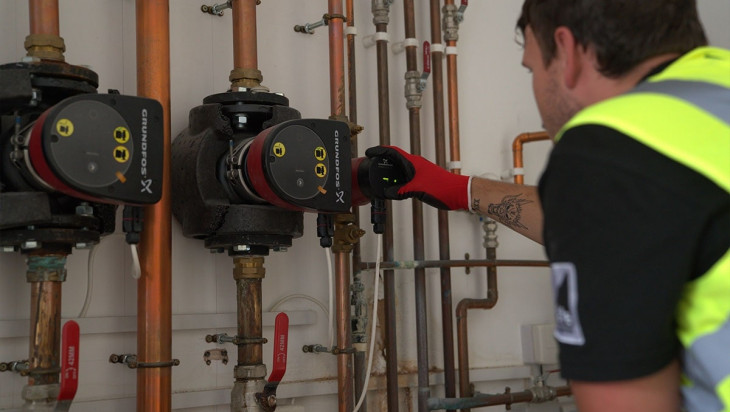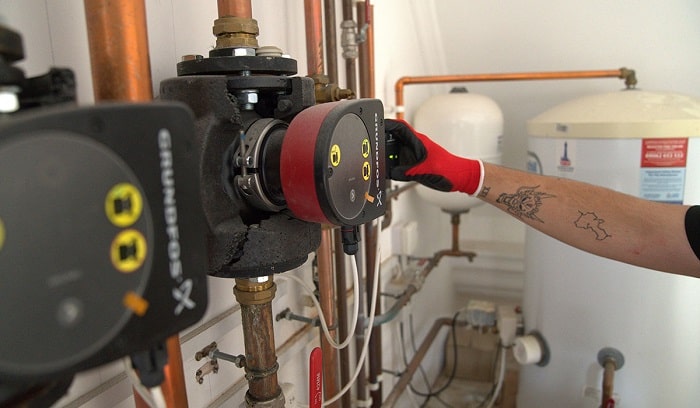
The gas supply should be steady and reliable to keep homes warm, power appliances, and ensure the environment is safe. Proper gas pressure ensures the proper functioning of gas appliances, including boilers, central heating systems, and stoves. Low pressure can lead to higher energy bills, performance issues, and safety hazards sometimes. The cause of low gas pressure is an insufficient gas flow to the appliance in response to demand. It can be due to various reasons, including a temporary spike in demand, leaks, or blockages.
In this blog, you will find some ways to identify, manage, and prevent issues caused by low gas pressure. Some beneficial tips can help you maintain efficient gas systems and ensure a safe environment in your home, as well as identify the signs when it's necessary to contact a professional for assistance.
Firstly, it is important to understand gas pressure. It is essentially the force at which LPG or natural gas is flowing, allowing it to reach the appliances. It ensures that heaters, boilers, and stoves receive an adequate supply so they can operate efficiently.
In residential homes, the pressure of gas is measured in pounds per square inch (psi) or millibars (mbar). In the UK, domestic natural gas requires approximately 21 mbar pressure to ensure the appliances are functioning properly. If the level of gas pressure deviates from this value, it can be the cause of potential hazards or operational problems.
Some signs that indicate low gas pressure are as follows:
These signs can be considered as an early warning that there are some issues going on. Recognizing them early helps to save you from potential hazards.
Various factors can contribute to low gas pressure in commercial as well as residential properties. It is better to identify the root cause timely sure safe environment:

Safety should be the first priority if you are dealing with the issue of low-pressure gas. These issues can escalate quickly and often lead to dangerous situations. Thus, make sure to follow the precautions as given below:
It is better to contact a Gas Safe registered engineer to come for inspection and indicate the leakages so you are able to fix the leakages properly.
A careful and systematic approach is required to resolve the issue of low gas pressure. Homeowners can check some issues, but sometimes may need professional help. The following is a guide to deal with low gas pressure:
First step is to check if the issue is in one appliance or the entire property. If only one appliance is not working properly or showing signs of leakage, then try to observe visible signs of damage. Avoid dismantling the appliance yourself.
There is an option in modern appliances, such as boilers, to reset the machine. It helps to restore normal functioning after pressure drops. Reset the appliance by following the instructions given in the manual.
Keep safety in mind and try a soap and water test on joints of pipes that are exposed; it can help to detect potential leaks. This is only a primary inspection, and you must hire a professional to detect the leakages.
Make sure that the pressure regulator and gas meter are working fine. There can be a change in pressure if there is any obstruction, regulators are frozen due to cold weather, or there is any tampering. Call the gas engineer if you suspect any damage.
Multiple high-demand appliances may be running at once, which can be the cause of low pressure, so try to turn off the appliances that are not necessary and then observe the pressure. If you see that turning on improves the gas pressure, then you must consult a professional who can guide you to increase the capacity by upgrading your system.
Contact a Gas Safe-registered engineer if you suspect any leakages or blockages. They will inspect the property and repair any damage that is causing low gas pressure.
Preventing low-pressure gas supply issues requires consistent care and professional oversight. Taking proactive steps can help ensure appliances operate efficiently and safely, while reducing the risk of costly repairs or emergencies.
It is important to prevent low gas pressure so that the appliances keep working safely and efficiently. It needs regular care and sometimes professional help to avoid these issues. Prevention is better as it will help to avoid costly emergencies and repairs.
Gas safety is a legal requirement in many regions and not just a good practice. In the UK, landlords are obliged to ensure that all of their gas appliances and pipelines, even in rental properties, are maintained properly. Annual gas safety checks are required through a Gas Safe-registered engineer to maintain safety and energy conservation. It is also a legal requirement to provide proof of a Gas Safety Certificate to tenants to ensure compliance in check.
If anyone fails to meet these requirements, then they must face heavy fines and penalties, and in some cases, prosecution also, if there are some serious consequences due to any damage. The repairs and installations should be according to national or local building regulations so that there is no inconvenience later and safety standards are met properly.
Turn off the unnecessary appliances if there is no leakage and call the professional in the morning. If you think there is some sign of leakage, then evacuate and call the helpline.
No. It is not possible as these systems are quite sensitive and any little mistake can cause leaks, explosions, or fires. Thus, always contact a professional gas engineer to make these kinds of changes.
It is recommended that gas appliances be annually serviced so the performance remains highly efficient. Other than that, it helps to detect any repairs and safety standards remain up to the mark.
Q4: Is low gas pressure dangerous for boilers?
Yes. It can definitely affect the boilers. It can cause inefficient heating, so be careful and schedule an appointment if the problem persists.
Low gas pressure affects the performance of the appliance and is also inconvenient in many ways. It increases the cost of energy bills and can be the cause of hazardous situations. It is better to identify any early signs and take safety measures accordingly.
Prevention is always better than taking risks. Thus, schedule regular maintenance, annual servicing, and inspections by a trained professional so the issues do not get bigger and can be repaired timely manner. Keep in mind that any repairs should be done by a Gas Safe-registered engineer to make sure that safety standards are fulfilled.
Staying efficient helps you to maintain a safe environment for your property and also extends the life of your appliances.
Fill the required information to order a gas safety certificate instantly.
Are you curious about your Gas Safety Certificate? With these simple steps, learn how to check its status and ensure your peace of mind.
Find out why your boiler is vibrating loudly. Explore causes, troubleshooting tips, and the importance of prompt repairs for a quiet and efficient heating system at home.
Gas engineers perform a gas safety check to ensure your gas appliances are safe. Read to learn what more you can expect from the gas safety check.
Learn about the importance of gas safety certificates for landlords and the legal consequences of not having a valid certificate.
Know your tenant rights: How long can a UK landlord leave you without hot water? Stay informed, assert your rights.
Every landlord in the UK is legally bound to follow gas safety regulations as per the Gas Safety (Installations and Use) Regulations 1998.
Fill out the following enquiry form and we will contact you as soon as possible.